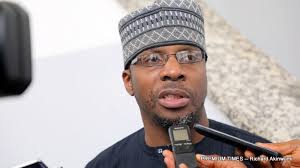Yemi Kale, former statistician-general of the National Bureau of Statistics (NBS), says about 89 million Nigerians — equivalent to 40 percent of the population — live below the poverty line, placing the country second only to India in the global poverty ranking.
Kale, now group chief economist and managing director of research and trade intelligence at Afreximbank, made the disclosure yesterday at The Platform Nigeria’s Independence Day event themed ‘Rebuilding Our Nation’.
“To grasp the magnitude of this number, we can consider that fewer than 20 of the world’s 195 recognised countries even have a population larger than just Nigeria’s estimated number of poor,” he said.
He warned that compounding poverty dynamics threaten the promise of independence that every Nigerian should have the opportunity to thrive at home. According to him, policy missteps and costly delays in implementing reforms largely explain the crisis.
“Key adjustments, some finally underway, should have begun over a decade ago, when warning signs were already evident,” Kale said. “Acting sooner would have significantly softened the impact on households and businesses, sparing the economy years of compounding fiscal and inflationary pressures. Instead, distortive monetary and exchange rate policies lingered, eroding investor confidence and choking off investment.”
Kale acknowledged that recent reforms are difficult but stressed they are unavoidable. “There is really no credible alternative,” he said. “Consistent and integrity-driven execution will turn Nigeria’s potential into real, broadly shared prosperity, impacting daily lives beyond statistics and speeches.”
He cautioned, however, that reforms must be humane and well-sequenced. “Too often in Nigeria this has been overlooked or poorly implemented, resulting in avoidable hardships,” Kale said.
He emphasised that government’s role is not to avoid reforms but to sustain them while urgently strengthening social protections to ensure the transition is both economically sound and socially just.





